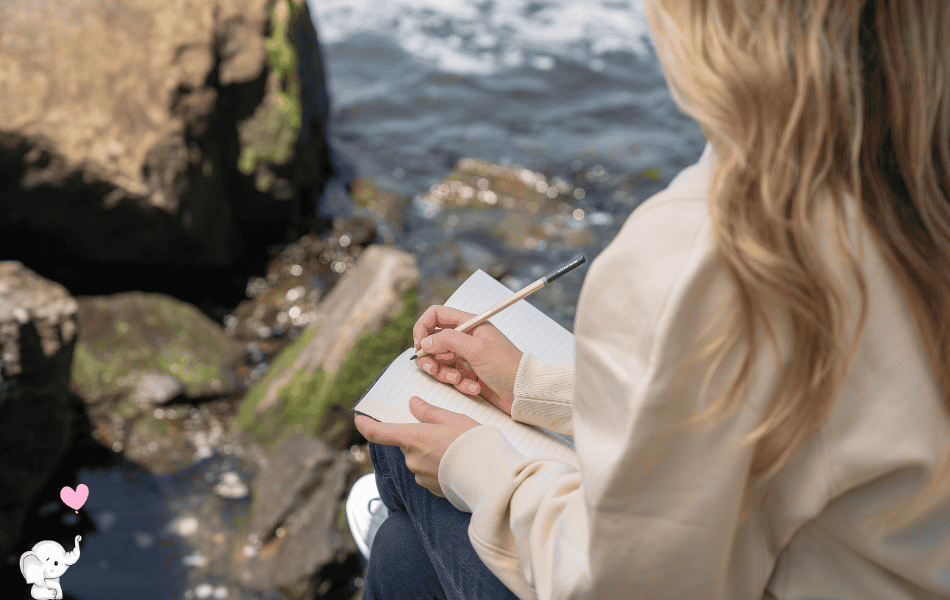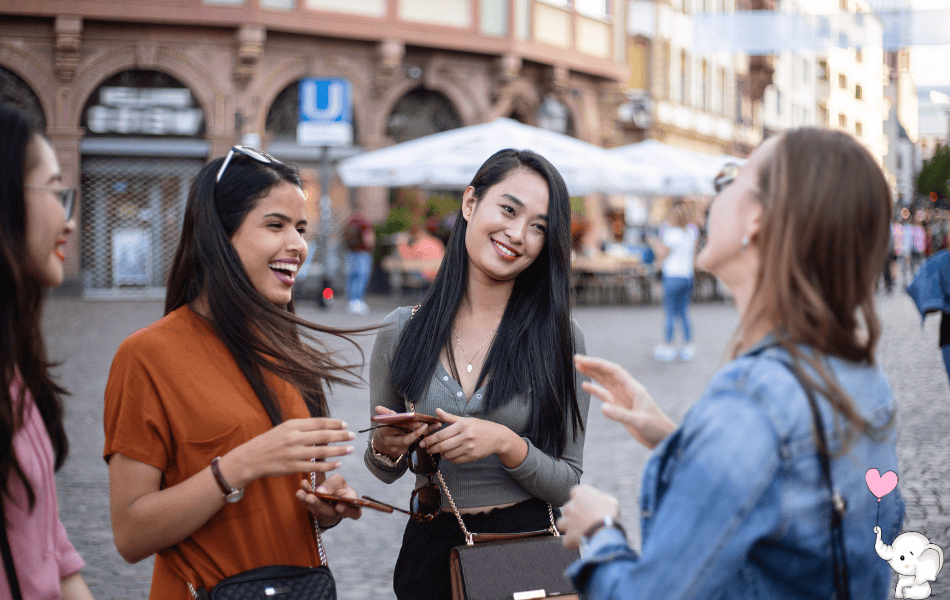In a world that’s hurting, travelling well today means moving with awareness, empathy, curiosity, and care; not to escape its pain, but to connect.
How to Stay Awake, Kind, and Curious When the World Needs More Than Just Wanderlust
The Dilemma of the Modern Traveller
“Is it ethical to sip cocktails on a beach while the world burns?”
It’s a question that creeps in quietly—maybe as you scroll past a news headline while waiting to board a flight, or when your tuk-tuk speeds past a slum en route to a boutique hotel. In a world teetering under the weight of the climate crisis, political instability, inequality, and displacement, travel can feel like an indulgence at best, and complicity at worst.
But the answer isn’t to stop travelling. The real challenge is learning how to travel well.
Today’s traveller lives with a quiet tension: the desire to explore and feel alive versus the responsibility to stay awake to the realities of a hurting world. We’re caught between the freedom of wanderlust and the weight of global awareness. That inner tug-of-war isn’t just personal, it’s political, cultural, and deeply human.
Let’s be clear: this isn’t about guilt-tripping anyone out of a holiday. Guilt alone doesn’t change the world; it just keeps us stuck. What we need instead is awakening; an unflinching look at how we move through the world, and how those movements ripple outward.
Because today, travelling well isn’t about luxury or even bucket lists. It’s about being awake, kind, curious, and responsible – qualities that turn a trip into something much deeper than an escape. It’s about choosing connection over consumption, listening over performing, and impact over aesthetics.
Travel, done well, still matters. Maybe more than ever.
Travel Is Not Escapism — It’s Engagement
Why how we travel matters more than ever

There’s a myth gaining quiet momentum in certain circles: “The world is too broken for travel.” As if travel is an indulgence best paused until the fires are put out, the wars are over, and the inequities balanced.
But the truth is this: the world has always been hurting. And travel, when done consciously, has always had the potential to help heal, not through saviourism, but through connection, humility, and mutual understanding.
Travel isn’t inherently selfish. However, disengaged travel, the kind that moves through cultures without truly seeing them, treats destinations like consumable products or insulates travellers from the realities around them, can be. When we travel without awareness, we risk reducing vibrant, complex places to backdrops for our pleasure.
But travel doesn’t have to be an escape. It can be engagement. A way to step out of our silos and into someone else’s story. It can shake loose our assumptions, expand our empathy, and remind us just how interconnected our struggles and joys are.
We’ve seen this shift in action. Travellers trading in their itinerary of Instagrammable “must-sees” for community-led walking tours that unpack colonial histories. Volunteers who once jumped into voluntourism are now investing time in understanding who benefits. Digital nomads prefer to spend their money with local cooperatives rather than global chains. These are not grand gestures. They are small, deliberate acts of choosing to engage.
So no, you don’t have to stay home to care. But if you go, go differently. Go deeper. Ask better questions. Travel not just to see the world, but to meet it, on its terms.
Because how we travel shapes not only how we see the world, but how the world sees us in return.
| Great read: Non‑Touristy Things to Do on Vacation: Curious About Culture. Demonstrates how stepping off the beaten path builds empathy and engagement. The New Tourist: Waking Up to the Power and Perils of Travel by Paige McClanahan reframes tourism in the context of overtourism, mindful engagement, and cultural impact. |
The Four Pillars of Travelling Well
Travelling well in today’s world isn’t about perfection; it’s about intention. It’s about shifting from unconscious consumer to mindful mover. These four pillars offer a compass: not rules, but reminders. A way to travel not just farther, but better.
1. Stay Awake

To travel well, you have to stay awake, not just to the beauty of new places, but to their complexity. This means being conscious of where you are, what’s happening around you, and who is being affected by your presence.
Check your privilege at customs. If you’re travelling for leisure, that alone places you in a relatively elite global minority. Acknowledge it. Don’t weaponise guilt, use awareness as fuel for better choices.
Before you land, do the homework: What’s the political context? Are there current social tensions? Who holds power in this place, and who doesn’t?
Staying awake also means being mindful of your carbon impact, digital footprint, and economic influence. Are you supporting locally owned businesses, or feeding profits into multinational chains? Are your choices redistributing value, or extracting it?
Staying awake doesn’t ruin the trip. It deepens it.
| Great Read: Best Bird‑watching Tips for Beginners. Focuses on mindful observation, respect for nature, and quiet connection |
2. Be Kind
Kindness may sound basic, but in travel, it’s radical.

It means practising small, quiet acts of dignity: learning how to say “thank you” in the local language. Tipping fairly. Respecting traditions that aren’t your own. Looking a street vendor in the eye instead of past them.
But real kindness also means avoiding the performance of pity. Don’t romanticise poverty. Don’t “slum it” for content. When you frame someone’s hardship as your adventure, you’re centring yourself in someone else’s reality.
Instead, channel that curiosity and privilege into support. Choose the handmade craft over the imported trinket. Stay in a family-run guesthouse. Say no to unethical tours, even when they’re cheaper. Kindness is often inconvenient, and that’s what makes it matter.
| Good Read: The Ethical Traveler: 100 Ways to Roam the World (Without Ruining It!) by Imogen Lepere — offers practical tips on reducing carbon, supporting locals, and conscious travel. |
3. Stay Curious (Without Being a Spectator)
Curiosity is sacred when it’s humble. Ask: What don’t I understand yet? What’s missing from my narrative of this place?

Reject checklist tourism. Let go of the idea that you need to “do” a city in 48 hours. Instead, slow down and listen. Attend a local cooking class, walk with a community guide, or visit a museum curated by locals. Talk to people. Be willing to be wrong, and then learn.
And yes, go beyond the Instagram spots. Don’t travel to collect, travel to connect. Travel that only happens through a camera lens often misses the moment entirely.
Curiosity should feel less like window shopping and more like deep listening.
| Great Read: Travel Novice Island Hoppers: Thrilling Tips. Celebrates serendipity, self-discovery, and meaningful connection |
4. Travel Ethically
Ethical travel is not just about avoiding harm; it’s about choosing benefits, wherever possible.

Start with your mode of travel: choose trains over short-haul flights. Consider carbon offsets. Travel slower, stay longer, waste less.
Support indigenous – or community-owned lodgings, restaurants, and tours. When possible, choose experiences that keep money circulating within the community, not extracted from it.
Avoid extractive tourism, including well-meaning but misguided voluntourism. Before you sign up to “help,” ask: Who is actually benefiting? Is this community asking for this? Or are you just there to feel good?
Want help? Tools like Ethical Traveller, Pack for a Purpose, and B Corp-certified companies can guide you to businesses that prioritise people and planet over pure profit.
These four pillars aren’t a checklist. They’re a mindset. A commitment to moving through the world not just with a passport, but with presence.
Because how you travel matters, not just for others, but for who you become along the way.
| Great Read: Retiree Group Tours and Vacations. Covers community, shared experiences, and ethical decision-making even in group settings Airplane Mode: An Irreverent History of Travel by Shahnaz Habib — challenges travel-as-consumption and reminds you, “travel can be unsettling or disappointing,” yet deeply meaningful. |
The Role of Storytelling – Yours and Theirs
Whether you intend to or not, when you travel, you become a storyteller.

Every caption, photo, blog post, or anecdote over dinner is a story you’re telling about a place and the people who live there.
And stories matter. They shape how others understand the world. They influence where attention and investment go. They can uphold stereotypes or dismantle them. They can reduce a culture to a caricature or illuminate its complexity and depth.
So here’s the uncomfortable but necessary question: Are you reinforcing harmful narratives, or rewriting them with care?
Too often, travel stories centre the traveller as the hero, the explorer, the one who discovers. That framing might feel harmless, but it subtly places locals in the background of their own home. It can turn communities into scenery, pain into spectacle, and culture into content.
Ask yourself:
- Am I centring myself in someone else’s struggle?
- Am I portraying people with dignity, or as props in my journey?
- Am I flattening nuance into “exotic,” “poor,” or “authentic” tropes?
You don’t have to stop telling stories, just tell better ones.
Tips for more thoughtful storytelling
- Name places specifically. Avoid “Africa” or “Asia” as monoliths. Countries, regions, and even cities have unique histories and identities.
- Give credit. If a local taught you something, made something, or guided you, say so. Acknowledge the human hands behind the experience.
- Include historical and social context. If you visit a former colony, a site of displacement, or a community affected by extractive industries, share what you learned. Let your audience leave more informed than when they arrived.
- Ask permission. Not every photo is yours to take or to share.
Remember: Be an amplifier, not a saviour. Your role is not to speak for people; it’s to use your platform to uplift their voices, their perspectives, and their humanity.
The stories you tell don’t just reflect where you’ve been.
They reflect who you are becoming.
Travel Can Still Be Joyful (In Fact, It Should Be)
Let’s be clear: ethical travel doesn’t mean joyless travel.

There’s a lingering misconception that being a mindful, responsible traveller means stripping away all spontaneity, laughter, or indulgence; that in order to do good, you have to feel bad. But the truth is more generous than that.
Joy is not a betrayal
When rooted in respect, connection, and humility, joy becomes something deeper, not just personal pleasure, but shared humanity.
There is beauty in the serendipity of getting lost in a foreign city and being helped by a stranger. In belly laughs over shared meals, in music you didn’t expect to hear, in the quiet awe of standing somewhere sacred. There is deep, sustaining joy in witnessing resilience, in seeing how communities, even amid hardship, still celebrate, still create, still dance.
This kind of joy isn’t about escape. It’s about immersion.
It’s not found in five-star experiences isolated from local life, but in a real, respectful connection with the world around you.
Travelling ethically doesn’t ask you to suppress joy, it asks you to expand your definition of it. To find joy not only in what you consume, but in what you contribute. Not just in what you see, but in what you learn, and how you show up because of it.
Pleasure, when shared mindfully, becomes something else entirely:
a fuel for compassion, a spark for empathy, and a reminder of what’s worth protecting.
So yes, sip the cocktail. Dance at the festival. Laugh until your stomach aches.
Just make sure your joy isn’t built on someone else’s exploitation.
When travel is rooted in kindness, curiosity, and awareness, joy isn’t just allowed, it’s essential.
| Good Read: Only Planet: A Flight‑Free Adventure Around the World by Ed Gillespie — a deeply joyful yet carbon-conscious journey circumnavigating the globe without flights. |
So, What Does It Mean to Travel Well Today?
It means choosing awareness over apathy, empathy over efficiency, and depth over a checklist.
It’s not about travelling perfectly, it’s about travelling intentionally.
In a world that’s hurting, the way we move through it matters.
Travel well, not in spite of the world’s wounds, but because of them.
Let every journey be a chance to listen better, learn deeper, and leave lighter footprints behind.
Next time you book a ticket, ask yourself:
Will this journey make me, and the world, better?
2 thoughts on “Hurting Worlds, Mindful Journeys: How to Travel Well with Purpose”
Comments are closed.
Recent Posts
Discover Peartree Serviced Apartments Salisbury, once the Clovelly Hotel, a pet-friendly, stylish stay near the cathedral, station and Wiltshire’s top sights. Some places simply give you a bed...
Discover insider tips to find cheap flights from the UK, save on easyJet, Ryanair & BA, and score the best weekend and last-minute deals. Why You’re Paying Too Much for Flights Most UK...


Hi there just wanted to give you a quick heads up. The text in your article seem to be running off the screen in Chrome. I’m not sure if this is a formatting issue or something to do with web browser compatibility but I figured I’d post to let you know. The design and style look great though! Hope you get the problem solved soon. Thanks
Thank you for letting me know. I will need to figure out how to fix that.